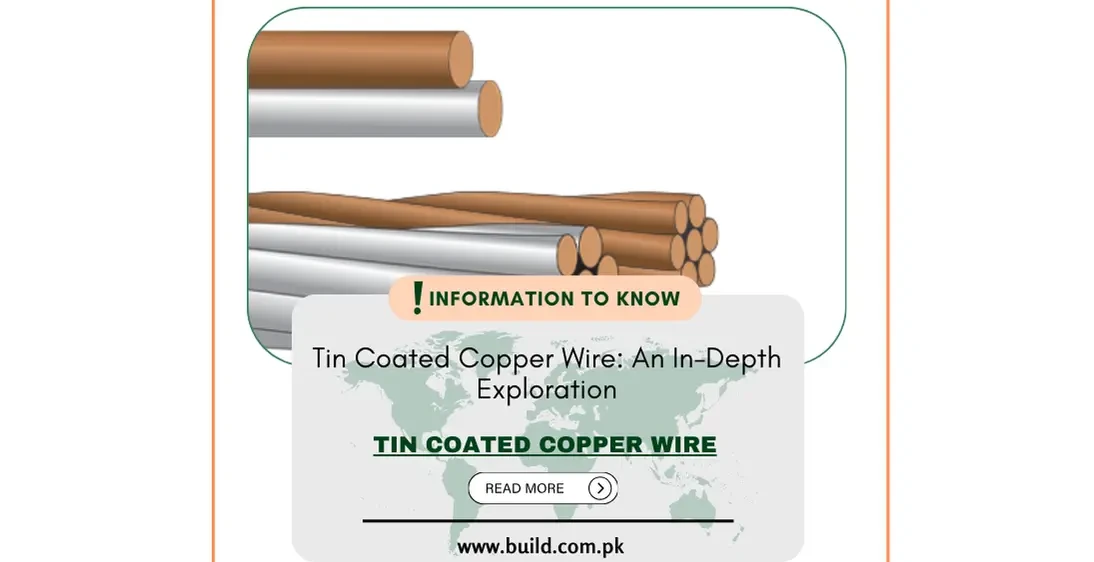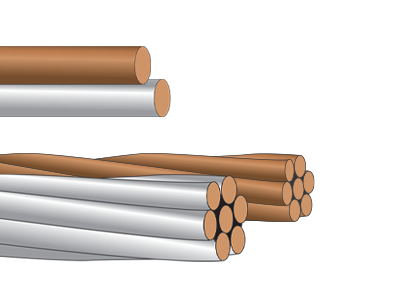Tin Coated Copper Wire: An In-Depth Exploration

Introduction:
Tin
coated copper wire is a specialized type of electrical wire that has a wide
range of applications across various industries. The process involves coating
copper wire with a thin layer of tin to enhance its properties, making it more
resistant to corrosion and easier to solder. This comprehensive guide will
delve into the details of tin coated copper wire, exploring its benefits,
manufacturing process, applications, and much more.
Understanding Tin Coated Copper Wire
What is Tin Coated Copper Wire?
Tin
coated copper wire is essentially a copper wire that has been coated with a
layer of tin through a process called electroplating. This coating serves
multiple purposes, primarily aimed at improving the wire's durability and
performance in different environments.
The Manufacturing Process:
The
manufacturing process of tin coated copper wire involves several steps:
- Wire Drawing: The process begins with drawing the copper wire to the desired diameter. This step is crucial as it determines the thickness and flexibility of the final product.
- Cleaning: The drawn copper wire is thoroughly cleaned to remove any impurities or contaminants that could affect the quality of the tin coating.
- Annealing: The wire is then annealed to soften it, making it more pliable for furter processing.
- Electroplating: The cleaned and annealed copper wire is passed through an electrolytic bath containing tin. An electric current is applied, causing the tin to deposit onto the surface of the copper wire.
- Quality
Control: The coated wire undergoes rigorous quality control checks to ensure
the tin coating is uniform and meets the required standards.
Benefits of Tin Coated Copper Wire
Corrosion Resistance:
One
of the primary benefits of tin coated copper wire is its enhanced resistance to
corrosion. The tin layer acts as a protective barrier, preventing oxidation of
the copper underneath. This makes tin coated copper wire ideal for use in
environments where moisture and other corrosive elements are present.
Improved Solderability:
Tin
coated copper wire is easier to solder compared to bare copper wire. The tin
coating provides a smooth, clean surface that facilitates better adhesion of
solder, resulting in stronger and more reliable connections. This property is
particularly valuable in electronics and electrical applications where precise
and secure soldering is essential.
Enhanced Electrical Conductivity:
While
copper itself is an excellent conductor of electricity, the addition of a tin
coating does not significantly impact its conductivity. In fact, the coating
can improve the overall performance of the wire by reducing contact resistance
and enhancing signal integrity in high-frequency applications.
Longevity and Durability:
The
tin coating not only protects against corrosion but also adds to the overall
durability of the wire. This means that tin coated copper wire has a longer
lifespan and requires less frequent maintenance or replacement, making it a
cost-effective choice for long-term applications.

Applications of Tin Coated Copper Wire
Tin
coated copper wire is used in a variety of industries due to its unique
properties. Some of the key applications include:
Electronics:
In
the electronics industry, tin coated copper wire is widely used for wiring and
connecions in electronic devices and circuit boards. Its excellent
solderability and corrosion resistance make it ideal for these sensitive and
precise applications.
Automotive Industry:
The
automotive industry utilizes tin coated copper wire for various wiring
harnesses and electrical components. The wire's durability and resistance to
harsh environmental conditions make it suitable for use in vehicles, where it
must withstand temperature fluctuations, moisture, and vibrations.
Marine Applications:
Marine
environments are highly corrosive, making tin coated copper wire a preferred
choice for wiring on boats and ships. Its corrosion resistance ensures reliable
performance and longevity even in saltwater conditions.
Telecommunications:
Tin
coated copper wire is also used in the telecommunications industry for various
types of cabling, including coaxial and data cables. Its enhanced conductivity
and signal integrity are crucial for maintaining high-quality communication
links.
Renewable Energy:
In
renewable energy systems, such as solar and wind power installations, tin
coated copper wire is used for electrical connections and wiring. Its
durability and resistance to environmental factors contribute to the efficiency
and reliability of these systems.
Types of Tin Coated Copper Wire
Solid Tin Coated Copper Wire:
Solid
tin coated copper wire consists of a single copper conductor coated with tin.
This type is typically used in applications where a stable and reliable
connection is needed, such as in electronic devices and certain electrical
components.
Stranded Tin Coated Copper Wire:
Stranded
tin coated copper wire is made up of multiple thin copper strands twisted
together and coated with tin. This type of wire offers greater flexibility and
is commonly used in applications where the wire needs to be bent or maneuvered,
such as in automotive and marine wiring.
Choosing the Right Tin Coated Copper Wire
When
selecting tin coated copper wire for your specific application, several factors
need to be considered:
- Gauge: The gauge of the wire determines its thickness and current-carrying capacity. Choosing the right gauge is crucial for ensuring the wire can handle the electrical load without overheating.
- Environment: Consider the environment in which the wire will be used. For harsh environments with high moisture or corrosive elements, ensure the wire has a high-quality tin coating for maximum protection.
- Flexibility: For applications requiring frequent bending or movement of the wire, stranded tin coated copper wire is preferable due to its flexibility and resilience.
- Compliance: Ensure that the tin coated copper wire meets relevant industry standards and regulations for safety and performance. This is particularly important in critical applications such as automotive and aerospace.
Maintenance and Care
Proper
maintenance and care can significantly extend the lifespan of tin coated copper
wire:
- Regular Inspection: Regularly inspect the wire for any signs of wear, corrosion, or damage. Early detection can prevent more significant issues and costly repairs.
- Proper Storage: Store the wire in a cool, dry place to avoid exposure to moisture and other corrosive elements.
- Clean Connections: Ensure all connections are clean and free of debris to maintain optimal conductivity and performance.
- Avoid
Overloading: Do not exceed the wire's rated current-carrying capacity to
prvent overheating and potential damage.
Conclusion:
Tin
coated copper wire is a versatile and reliable solution for a wide range of
electrical and electronic applications. Its unique properties, including
corrosion resistance, improved solderability, and enhanced durability, make it
an ideal choice for industries such as electronics, automotive, marine,
telecommunications, and renewable energy. By understanding the benefits,
applications, and considerations associated with tin coated copper wire, you
cn make informed decisions for your specific needs and ensure long-lasting and
efficient performance.









